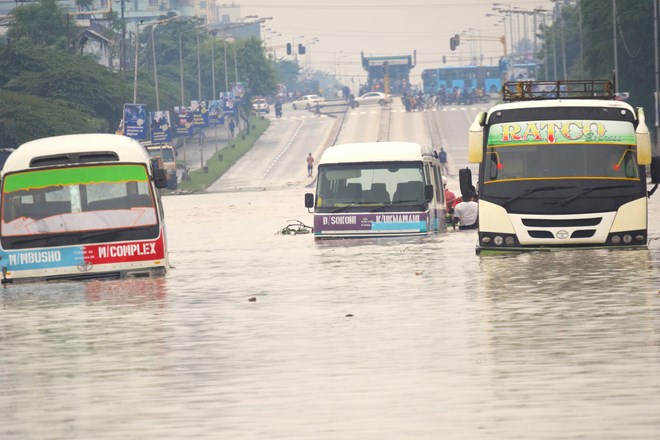
Hassan Istiila
Friday May 10, 2024

Abandoned minibuses in Dar es Salaam, Tanzania.Photographer: AP Photo
Nairobi (HOL) - The United Nations Children's Fund (UNICEF) has reported that floods and landslides resulting from heavy rains are affecting almost one million people in Eastern Africa, emphasizing the urgent need for humanitarian assistance.
In its latest East Africa flood situation report released on Thursday, UNICEF stated that large numbers of people have been displaced in Burundi, Kenya, Somalia, and Tanzania. Significant damage has been reported, including to homes, schools, and infrastructure, as well as the loss of crops and livestock.
UNICEF Regional Director for Eastern and Southern Africa Etleva Kadilli said in a statement issued in the Kenyan capital of Nairobi that heavy rains and subsequent floods have disrupted lives and posed significant risks to children in the affected regions.
“Currently, safety and health, as well as access to food, clean water and vital services remain paramount. UNICEF is working closely with governments and local partners engaging with affected communities to identify the most urgent needs and ensure children are safe, able to continue learning and receiving psycho-social support as needed,” said Etleva Kadilli.
The heavy rains in the region, exacerbated by the 2023-2024 El Nino climate phenomenon, have resulted in hundreds of casualties. In Kenya, schools were closed for several weeks and are due to reopen next week. The floods have also led to another cholera outbreak, with 48 cases reported. In Somalia, more than 160,000 people, two-thirds of whom are children, have been affected by the latest flooding.
Kadilli emphasized that the vulnerability of communities in eastern and southern Africa has increased amid the escalating crisis of droughts and floods caused by El Nino, raising serious concerns about the future of children in the region.
"Children, young people and women, including those with disabilities are particularly at risk of violence, abuse and exploitation as humanitarian needs continue to increase. Thanks to the invaluable support from our donors and partners, UNICEF is actively engaged on the ground. Together with governments, civil society, and local communities, we are delivering lifesaving interventions and bracing for potential surges in humanitarian needs,” said Kadilli.
Kadilli further highlighted that sustained and flexible support from donors and multilateral climate funds, including investments and other innovative financing with governments in climate prevention and preparedness programs, will be critical to saving lives and strengthening the resilience of children repeatedly hit by climate emergencies.